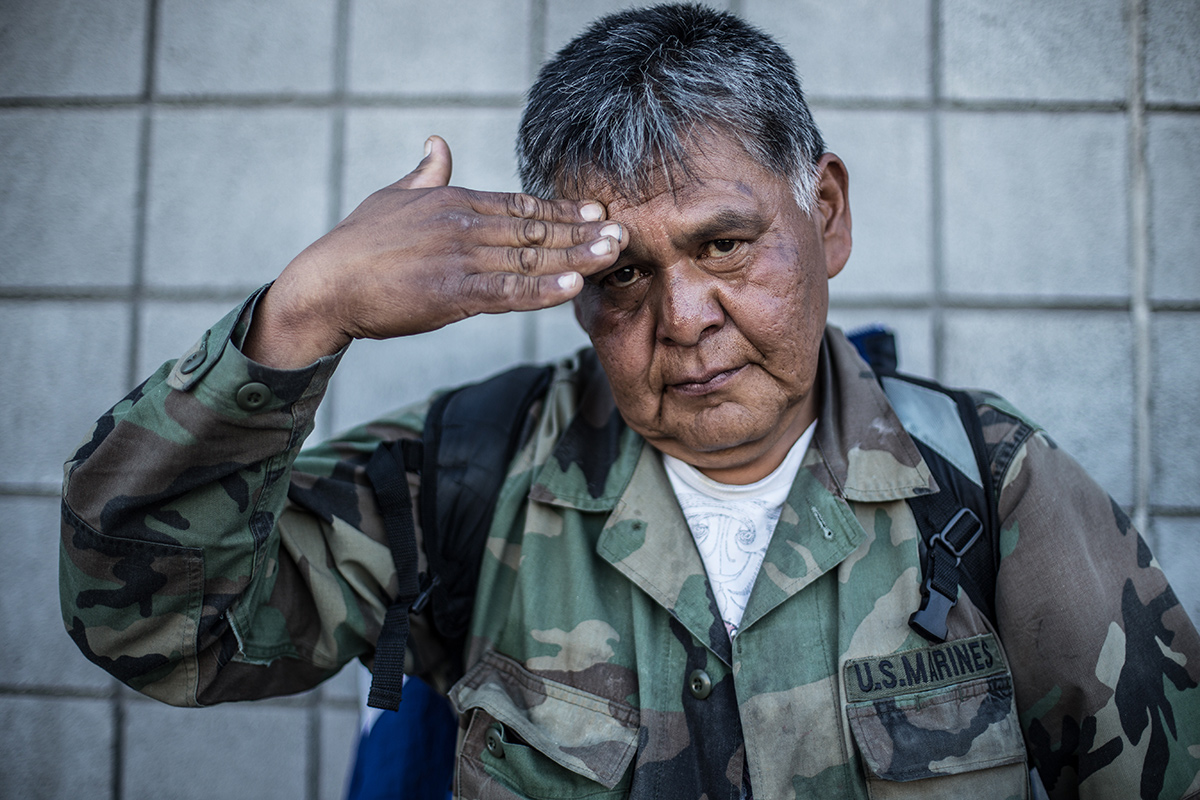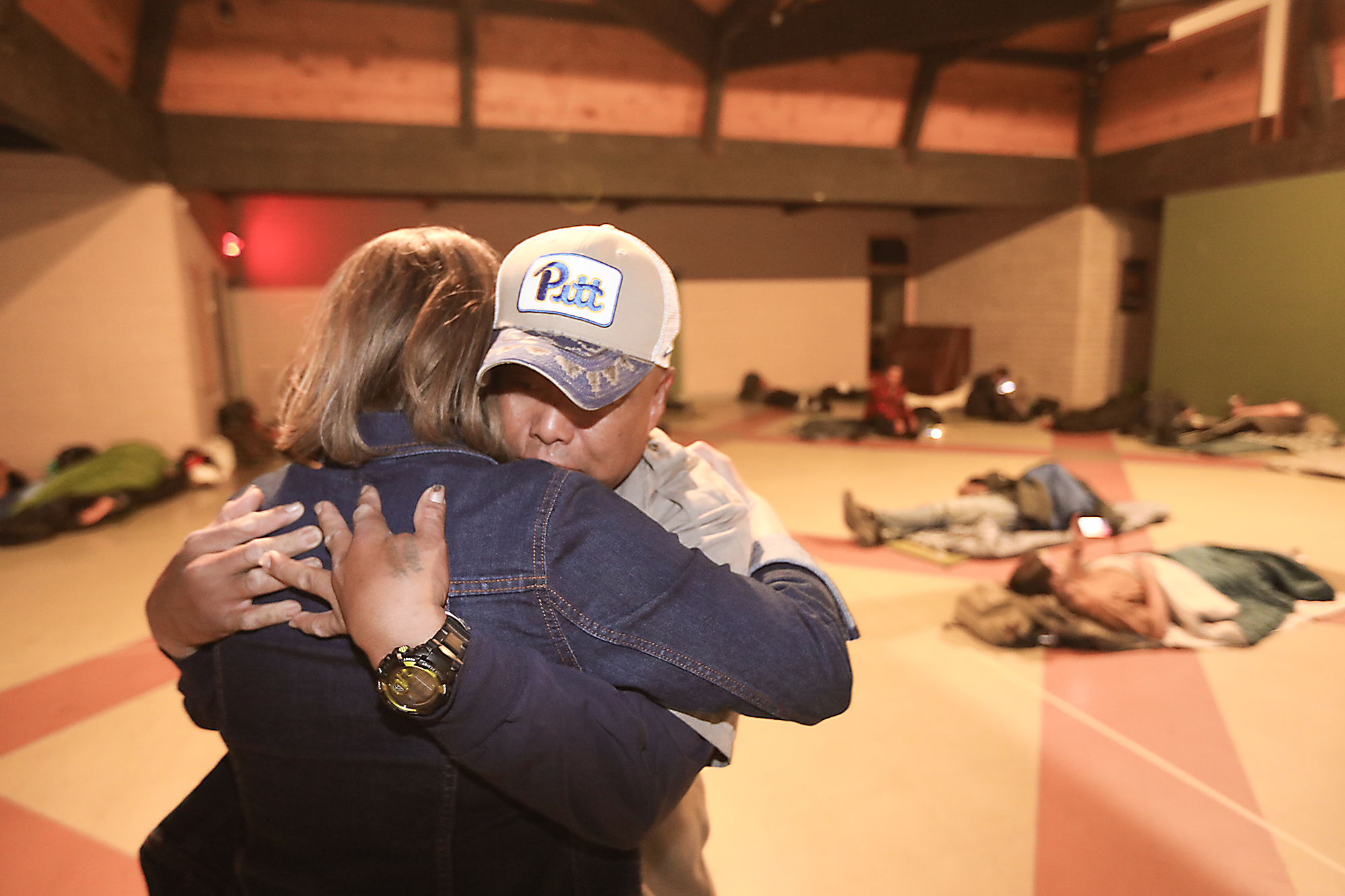If you’ve never claimed the Arizona Charitable Tax Credit, you’re missing out on a chance to decide where your tax dollars go — and it doesn’t cost you anything.
There’s no downside to donating to charity in Arizona because every dollar you give to charity now will come back to you when you file your Arizona state taxes. It’s part of a special program offered by the state of Arizona to encourage residents to donate to local charities.
Cash donations from individuals are literally what keep the lights on. While a lot of our funding comes from grants, all of that money has strings attached — it’s specifically for computers or for job training or for children’s food. But our day-to-day needs aren’t glamorous — light bulbs, toilet paper, electricity … the vital necessities in running a shelter are funded by the no-strings-attached donations from citizens and we can’t function without it.
What is the Arizona tax credit program?
Believe it or not, Arizona is one of the best states in the country when it comes to tax credits for charitable giving.
What used to be called the “Arizona Working Poor Tax Credit” is now the “Arizona Charitable Tax Credit” and while the legal jargon in the law may sound intimidating, the charity tax credit is actually extremely easy to claim.
Simply put, the Arizona dollar for dollar tax program repays you, dollar for dollar, on the money you donate to qualifying Arizona charities.
If you donate $400 to a qualifying state charity, the state of Arizona takes that $400 off your final state tax bill. That means if your state tax bill for the year is $500 but you donated $400 to Flagstaff Shelter Services, you will only have to pay $100 in Arizona state tax. If your state tax bill for the year is $500 and you didn’t donate any money to charity, you will have to pay $500 in Arizona state tax. Either way, your wallet is $500 lighter but if you donated the money, you got to decide for yourself where most of it goes.
It’s a win-win and it costs you nothing, since you’d otherwise be paying that same amount of money in taxes – you just wouldn’t get a direct say in which organization received it.
So what’s the catch?
There’s no catch, just an Arizona tax credit limit. A married couple filing jointly can get credit for up to $800 donated to the category called Qualified Charitable Organizations (QCO). That means you can donate $800 to a QCO like Flagstaff Shelter Services or $100 to each of eight different QCOs, or $5 to each of 160 QCOs … you get the idea.
Of course you can donate more, but you’ll only get credit for $800 if you’re filing jointly, or $400 if you’re filing singly.
How successful is it? The Arizona Department of Revenue reports that more than 165,000 Arizona residents contributed more than $68.5 million to Qualified Charitable Organizations in tax year 2017. That number is up from the previous year and we expect it to be even higher when the 2018 figures are released.
How does the Arizona tax credit work?
QCO is just one of the five categories of Arizona tax credit nonprofits and each one is separate — so you could claim the maximum amount in all five categories. That’s great for charities because it means that you can donate the maximum amount to a homeless shelter and also donate the maximum amount to a foster care group and also the maximum amount to your child’s school.
Arizona tax credit charities
You may hear the term “qualifying charitable organization” or “QCO” get thrown around a lot. What are Arizona qualifying charitable organizations? QCO is the largest of five categories for charitable Arizona state tax credits. The categories are:
Qualifying Charitable Organizations (QCO) – This category covers hundreds of Arizona-based charities from food banks to homeless programs, including Flagstaff Shelter Services. The 2019 cap for this category of donations is $400 for an individual or $800 for a couple filing jointly.
Qualifying Foster Care Charitable Organizations (QFCO) – This category has a few dozen organizations, which primarily help residents in the foster care system. The 2019 cap for this category of donations is $500 for an individual or $1,000 for a couple filing jointly.
Public Schools – This is where you claim credit for the fees you pay to your child’s school, or for the extracurricular activities your child participates in through the school. It includes both public and charter schools and the 2019 cap for this category of donations is $200 for an individual or $400 for a couple filing jointly.
School Tuition Organization – This category lets you claim credit for donations for scholarships or grants, although you cannot claim donations to a scholarship for your own child. The 2019 cap for these donations totals $ 1,110 for an individual or $2,206 for a couple filing jointly, but be aware that School Tuition Organization and Certified School Tuition Organization are considered two different subcategories and the credits have to be claimed separately. The Arizona Tax Coalition explains it more fully in their quick-reference flyer.
Military Family Relief Fund – This fund is for families who need financial help as a result of disabilities sustained during military service. The 2019 cap for these donations is $200 for an individual or $400 for a couple filing jointly. This fund has an annual cap of $1 million, which it usually hits in October. After $1 million has been donated for the year, subsequent donors can’t claim the tax credit.
Donating less than the maximum
Most people don’t donate the full amount of the maximum tax credit for donations in any category. Do charities want your $5 or $10 donations? Of course we do! There’s no minimum on the tax credit and we’re grateful for whatever you can give. And since you’ll get it back as a credit anyway, there’s no reason not to!
And you don’t have to itemize your taxes to get the credit. Even if you take the standard deduction, you can still claim it and see your tax bill reduced — or see it disappear completely.
The easiest way to do it is to sign up for a monthly giving plan — $33 a month for a single person equals $400 a year, which will all come back to you when you file your taxes.For a married couple, that’s $66 a month — and you’ll get it all back!
Carrying it over
Some people end up donating more than they owe in taxes. If that’s you then don’t worry — you can still get the rest back — just carry it over to next year. If you donated $400 to Flagstaff Shelter Services this year but when you file your taxes, you find that you only owe $100, you can just deduct the other $300 from your taxes next year – and the year after that and the year after that … for five years.
Payroll deduction
A lot of people pay taxes out of their regular paychecks but that doesn’t change their ability to claim the tax credit. Flagstaff CPA Johanna Klomann explains it best:
“You make $600 a week but taxes are withheld, so you see a lot less than that in your paycheck,” Johanna explains. “When your tax bill comes due in April, you find that you already paid $1,000 to Arizona in state taxes — and you only owed $900. Plus, you donated $400 to a qualifying charitable organization.It’s okay — you’ll get it back. Arizona is going to refund you that extra $100 (because you paid $1,000 but only owed $900), and it’s also going to give you back the $400 you donated to charity. So when you file your state taxes, you’ll get a check for $500.”
Are charitable contributions deductible in Arizona?
Arizona is at the forefront of charitable giving policies so the Arizona tax credit donation program is actually a lot better than a tax deduction. So what is the difference between the Arizona charitable tax credit vs. a tax deduction?
Most of us are more used to a tax deduction policy because that’s how federal taxes work. A tax deduction reduces the amount of income you pay taxes on. If you earned $40,000 and donated $400 to Flagstaff Shelter Services and $500 to a foster care organization, a tax deduction policy means your income is considered to be $39,100. With a 3% tax rate, you would owe $1,173 in taxes.
So how do state tax credits work? A tax credit is a better deal and this is how Arizona’s charitable tax credit policy works. If you earned $40,000, a tax credit policy means that with a 3% tax rate, you would owe $1,200 in taxes. But since you donated $400 to Flagstaff Shelter Services and $500 to a foster care organization, you can subtract that from the $1,200 tax bill so you only owe $300 in taxes.
How do you do it?
It’s not as hard as you think. Each charity has a numerical code (the Flagstaff Shelter Services code is 20067). When you make a donation to a charity, you’ll receive a thank-you note or a receipt listing the amount of your donation, and the organization’s code.
When you enter the donation into Turbo Tax or hand over your files to an accountant to prepare your taxes, you’ll be asked for that numerical code. Enter the code with the amount of the donation and that’s it.
It’s not that much harder if you’re filing on paper. Download the Arizona tax credit application for each category from the Arizona Department of Revenue’s Tax Credits Forms page and send it in with your taxes. The forms are fairly short and straightforward and direct download links are listed at the bottom of this article, along with links to lists of all of the Arizona tax credit organizations.
The fine print
There are a few caveats, of course. The Arizona tax credit only applies to money, not to items. You can claim the check that you write to Flagstaff Shelter Services, but you can’t claim the case of toilet paper that you drop off at the front desk. (Please drop off toilet paper anyway! We always need toilet paper!)
And it only applies to individuals and companies – businesses can’t claim this particular credit (they can claim other credits).
As always, you should consult with your accountant or other tax professional about your specific circumstances, and you can check the Arizona Department of Revenue’s tax credit page for detailed information about each tax credit.
The bottom line
Roughly $9 million is left on the table each year that individual taxpayers could have earmarked for the charity of their choice. Don’t leave your share on the table – donate to Flagstaff Shelter Services or to any of the other Arizona organizations that are doing their part to support our state.
About Flagstaff Shelter Services
The vision of Flagstaff Shelter Services is to provide “shelter tonight and housing tomorrow.” With the rising cost of housing in Flagstaff, AZ, Flagstaff Shelter Services provides emergency shelter for the region’s most vulnerable men and women in and then provides them with affordable housing in Flagstaff, AZ that they have the tools to maintain.
Ross Schaefer is the executive director at Flagstaff Shelter Services, the largest emergency shelter in northern Arizona. The nonprofit is open around the clock to anyone in crisis, regardless of faith, mental health or sobriety. In addition to offering emergency shelter for individuals, the organization also provides permanent, stable housing to families experiencing homelessness. An average of two families a week are moved into permanent housing and more than 85 percent of them do not return to homelessness.
Download an Arizona tax credit form:
Form 321 – Credit for Contributions to Qualifying Charitable Organizations
Form 352 – Credit for Contributions to Qualifying Foster Care Charitable Organizations
Form 322 – Credit for Contributions Made or Fees Paid to Public Schools
Form 323 – Credit for Contributions to School Tuition Organization
Form 348 – Credit for Contributions to Certified School Tuition Organization – Individuals
Form 340 – Credit for Donations to Military Family Relief Fund






